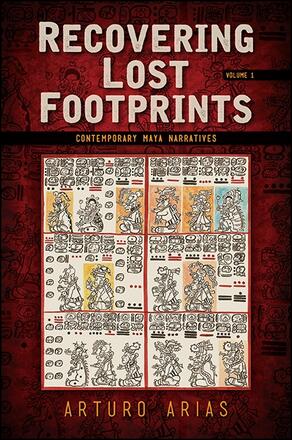
Recovering Lost Footprints, Volume 1
Contemporary Maya Narratives
Alternative formats available from:
Analyzes contemporary Maya narratives.
Description
Recovering Lost Footprints is the first full-length critical study to analyze Latin American Indigenous literary narratives in a systematic manner. In the book, Arturo Arias looks at Maya narratives in Guatemala. The study of these works is intended to spark changes so that constitutions recognize these cultures, their rights, their languages, their centers of worship, and their cosmologies. Through this study, Arias problematizes the partial or full omission of Latin America's original inhabitants from recognized citizenry. This book analyzes these elements of exclusion in the novelistic output of three salient figures, Luis de Lión, Gaspar Pedro González, and Víctor Montejo. The works by these writers offer evidence that most native people have entered modernity without renouncing their respective cultures or the specifics of their singular identities. The philosophical ethics elaborated in the texts, such as respect for nature and recognition of the holistic value of natural beings, enable non-Indigenous readers to both understand and relate to these values.
Arturo Arias is John D. and Catherine T. MacArthur Foundation Professor in the Humanities at the University of California, Merced. He is the author of Taking Their Word: Literature and the Signs of Central America.
Reviews
"Arias's study of Maya literature is important … Arias recognizes the complexity of the decolonial task at hand, acknowledging in his conclusion the need for different approaches and methodologies. This is perhaps what is most illuminating about Recovering Lost Footprints: it marks an important point in the development of the study of Maya literature, signaling a movement toward innovative decolonial approaches that set out to not only understand but also engage more fully with Maya authors and their work. " — Native American and Indigenous Studies
"This book provides an invaluable framework from which to study contemporary indigenous texts … Highly recommended. " — CHOICE